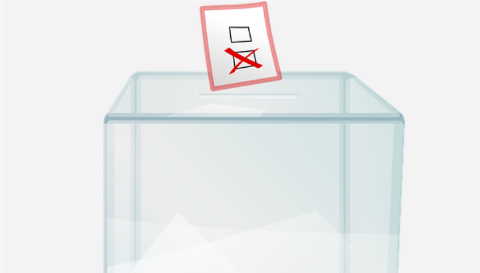Estimated reading time: 5 minutes
Understanding Missouri Mugshot Removal Law
In Missouri, arrest records and booking photos are generally considered public records. However, recent reforms have focused on protecting individuals from exploitation by mugshot websites that profit from humiliation. The Missouri mugshot removal law seeks to address these abuses, ensuring that private websites cannot charge people to remove booking photos, particularly in cases where charges were dismissed, sealed, or expunged.
For more information on state statutes, visit the Missouri Revised Statutes.
Why Mugshots Remain Online in Missouri
Even if charges are dropped or expunged, mugshots can linger on the internet. This happens because:
- Public access laws allow arrest data to be published.
- Third-party mugshot websites scrape sheriff’s office postings.
- Search engines rank mugshots highly for name searches.
- Data brokers package and sell information without frequent updates.
This system traps individuals in a cycle where their past arrests—regardless of outcome—overshadow their present.
The Impact of Mugshots on Missourians
Booking photos can affect nearly every aspect of life. A single Google search can alter someone’s personal and professional opportunities:
- Employment: Employers often search applicants before hiring.
- Housing: Landlords can deny applications when mugshots surface.
- Relationships: Friends, colleagues, and partners may judge unfairly.
- Community reputation: Small towns in Missouri are particularly susceptible to long-lasting stigma.
“A mugshot tells only part of the story—yet it can define someone forever.”
Key Elements of Missouri Mugshot Removal Law
Prohibiting Pay-for-Removal Schemes
Missouri restricts websites from demanding money for removing mugshots if the case did not result in conviction. This practice is considered exploitative and unlawful.
Removal Eligibility
Under Missouri law, mugshots must be removed if:
- The arrest did not lead to conviction.
- The record was expunged.
- Charges were dismissed or resolved in your favor.
Penalties for Noncompliance
Websites that refuse to comply may face civil liability and fines. Victims have the right to pursue lawsuits for damages.
How to Remove a Mugshot in Missouri
Step 1: Confirm Your Record Status
Check with the Missouri Case.net database to verify whether your case has been dismissed, sealed, or expunged.
Step 2: Contact the Mugshot Publisher
Submit proof of your record’s dismissal or expungement along with a request for removal.
Step 3: File a Complaint
If the site ignores your request, you may file a complaint with the Missouri Attorney General’s Office.
Step 4: Seek Professional Assistance
Work with experts like Remove Arrest who specialize in suppressing mugshots from search results and negotiating removal.
Expungement in Missouri and Its Role in Mugshot Removal
Expungement provides a legal foundation for mugshot removal. Missouri’s expungement statute, RSMo § 610.140, allows certain misdemeanors, felonies, and arrests to be erased from public record. Once expunged, websites are required to comply with removal requests.
Strategies for Protecting Your Online Reputation
Push Negative Content Down in Search Engines
Through the publication of positive content under your name, harmful results can be suppressed.
Request De-Indexing from Google
Google may de-index mugshot links if they violate policies or state law. Documentation is often required.
Monitor Your Name Online
Set up Google Alerts or reputation monitoring tools to stay updated.
Partner With Remove Arrest
Remove Arrest provides specialized solutions to:
- Remove mugshots from sites.
- Suppress harmful arrest-related results.
- Protect personal privacy across search engines.
👉 Start your mugshot removal today with Remove Arrest.
Legal Options When Mugshot Sites Refuse Removal
If websites do not comply:
- Civil lawsuits can be filed.
- Statutory damages may be awarded.
- Injunctions can force compliance.
Victims should consult legal counsel for guidance on pursuing these remedies.
Missouri Mugshot Removal Law and Public Records Access
While Missouri balances transparency and privacy, mugshots remain sensitive. Unlike news outlets reporting arrests, mugshot sites monetize humiliation. The state’s legislative efforts highlight the shift toward protecting citizens from exploitation while maintaining public safety.
For further reading on Missouri expungement, see resources from the Missouri Bar Association.
FAQ: Missouri Mugshot Removal Law
Yes. Mugshots are public records, but private websites are restricted in how they can use them.
Without intervention, mugshots may remain online indefinitely. Removal requests or suppression are necessary to manage exposure.
No. Expungement strengthens removal rights but does not automatically remove mugshots. Requests must be submitted.
Yes. Missouri law allows victims to seek damages and injunctive relief.
Employers may find mugshots during searches, but relying solely on them could lead to discriminatory practices.
No. Charging fees for mugshot removal is prohibited under Missouri law.
Expungement can take several months depending on court backlogs and case complexity.
Some sheriff’s offices and police departments in Missouri do publish booking photos online, but these are usually temporary. The bigger issue is when private websites scrape and republish them without removing outdated cases.
Yes. Landlords frequently screen applicants online, and a mugshot may influence their decision.
The Missouri Attorney General’s Office oversees enforcement, but individuals can also take civil legal action.
Hiring professionals like Remove Arrest ensures faster suppression and takedown compared to handling it alone.
The Missouri mugshot removal law offers a critical path for individuals to reclaim their privacy, but the burden often falls on the person affected. By combining legal tools, proactive reputation management, and expert support from Remove Arrest, Missourians can protect their image and ensure a brighter future.
👉 Reclaim your reputation with Remove Arrest.
Works Cited
Related Contents:






